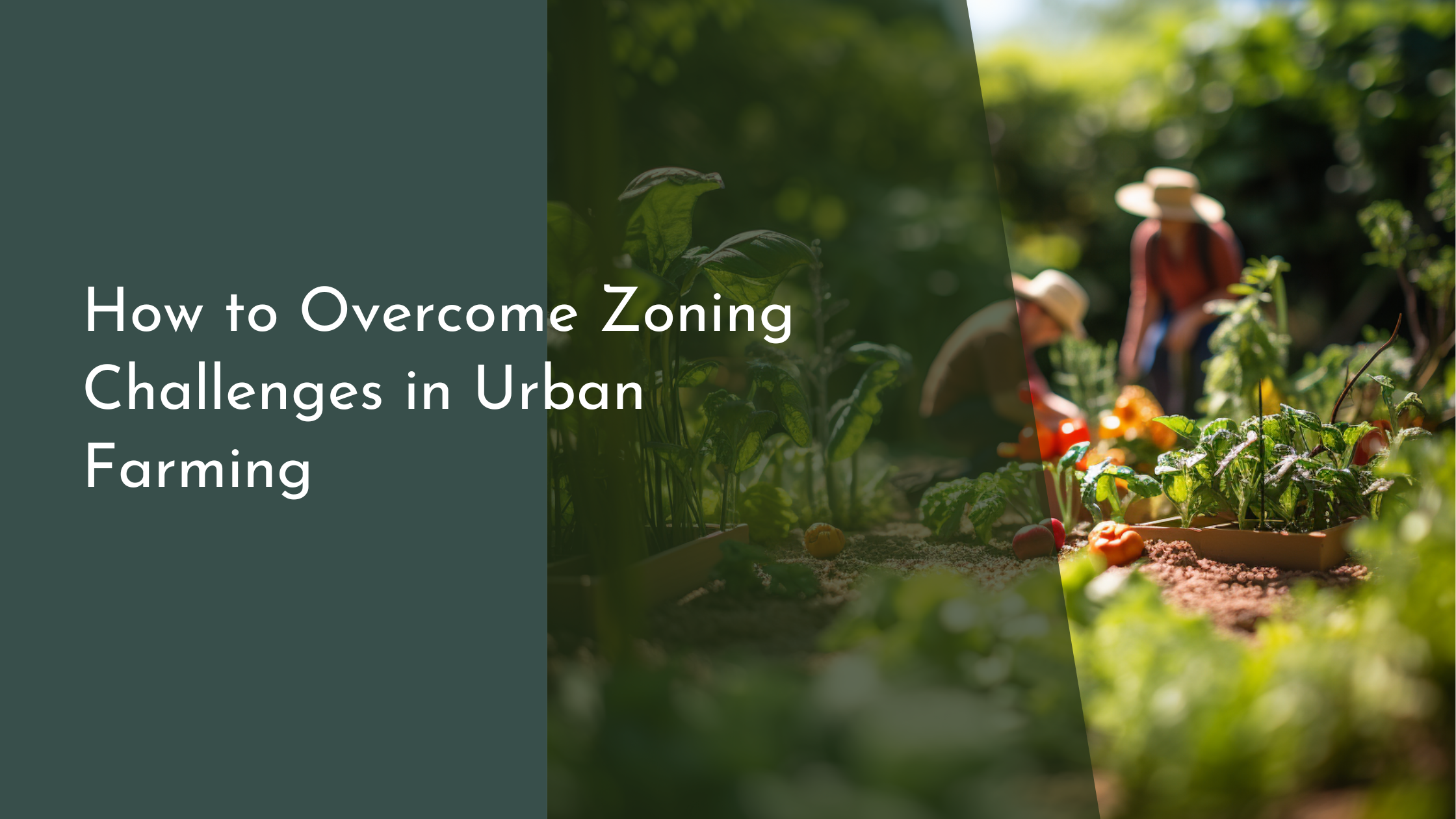How to Overcome Zoning Challenges in Urban Farming
Urban farming is becoming an increasingly popular way to bring fresh produce to city dwellers, support sustainable practices, and foster community engagement. However, one of the main hurdles that urban farmers face is navigating the intricate web of zoning regulations. These regulations, designed to organize urban land use, often pose significant challenges. This article will explore how to overcome zoning challenges in urban farming by understanding regulations, navigating legal hurdles, adopting innovative solutions, collaborating with local authorities, and ultimately achieving success.
Understanding Urban Zoning Regulations
Urban zoning regulations are laws that govern land use within a city, determining how land can be used and what activities are permissible in certain areas. Understanding these regulations is crucial for aspiring urban farmers, as non-compliance can lead to fines or even the shutdown of farming operations. Zoning categories, such as residential, commercial, or industrial, can restrict farming activities, but there are often exceptions and variances that can be leveraged by those who are well-informed.
To navigate these complexities, urban farmers must first research the specific zoning laws in their area. Local government websites and planning departments are excellent resources for obtaining zoning maps and regulations. In addition, attending city council meetings or community planning sessions can provide insights into any upcoming zoning changes that could affect urban farming efforts. By thoroughly understanding existing zoning regulations, urban farmers can better position themselves to advocate for the necessary permissions and variances that allow their operations to thrive.
Navigating Legal Hurdles in Urban Farming
Once familiar with zoning regulations, urban farmers may encounter various legal hurdles, such as obtaining permits or addressing community concerns. Permits are often required for activities like erecting structures, managing waste, or using certain farming equipment. Obtaining these permits can be a tedious process, but understanding the requirements and preparing the necessary documentation in advance can streamline the application process.
In addition to permits, urban farmers must be prepared to address potential community concerns. Neighbors may have worries about noise, pests, or the aesthetics of urban farms. Proactively engaging with the community, hosting informational sessions, and demonstrating the benefits of urban farming can help alleviate these concerns. Being transparent and approachable can foster goodwill and support for urban farming projects, which is invaluable when dealing with zoning committees and local authorities.
Innovative Solutions for Zoning Challenges
Innovative approaches can help urban farmers overcome zoning challenges by operating within existing regulations or finding creative ways to adapt. Rooftop farming, for example, leverages underutilized spaces in urban environments while bypassing traditional land-use constraints. This method not only maximizes available space but also contributes to energy efficiency by insulating buildings.
Another solution is vertical farming, which involves growing crops in vertically stacked layers, often indoors. This method requires minimal space and can be set up in areas where traditional farming is not feasible due to zoning restrictions. Vertical farming also allows for the control of environmental conditions, leading to higher yields and more efficient use of resources. By employing these innovative solutions, urban farmers can work within zoning constraints while expanding their agricultural operations.
Collaborating with Local Authorities
Building a strong relationship with local authorities is essential for overcoming zoning challenges in urban farming. Establishing open lines of communication and demonstrating a commitment to adhering to regulations can make local authorities more inclined to support urban farming initiatives. Participating in local government meetings and forums can also provide urban farmers with opportunities to present their case for zoning variances or amendments.
Moreover, collaboration with local authorities can lead to policy changes that support urban agriculture. Advocating for pro-farming policies, such as urban agriculture zones or tax incentives, can be more effective when done in partnership with officials who understand the benefits of urban farming. By working together, urban farmers and local authorities can create a more supportive environment for urban agriculture, paving the way for sustainable and resilient cities.
Embracing Success in Urban Farming
Achieving success in urban farming requires overcoming zoning challenges, but the rewards are substantial. Urban farms contribute to food security, reduce carbon footprints, and foster community engagement. They also provide educational opportunities and promote awareness of sustainable agriculture practices. By successfully navigating zoning regulations, urban farmers can create thriving operations that serve as a model for others.
Celebrating and sharing successes can further advance the cause of urban farming. Hosting open days, workshops, or community events can showcase the benefits and potential of urban agriculture to a broader audience. These events can also serve as platforms for networking and collaboration, helping to build a supportive community of urban farmers and advocates. By embracing and promoting their successes, urban farmers can inspire others to join the movement, leading to a more sustainable and food-secure future.
Overcoming zoning challenges in urban farming is a multifaceted process that requires understanding regulations, navigating legal hurdles, adopting innovative solutions, and collaborating with local authorities. While these challenges can seem daunting, they also present opportunities for creativity and community building. By embracing these opportunities, urban farmers can not only achieve their agricultural goals but also contribute to vibrant, sustainable urban environments. With persistence, collaboration, and innovation, the future of urban farming is bright and full of potential.

